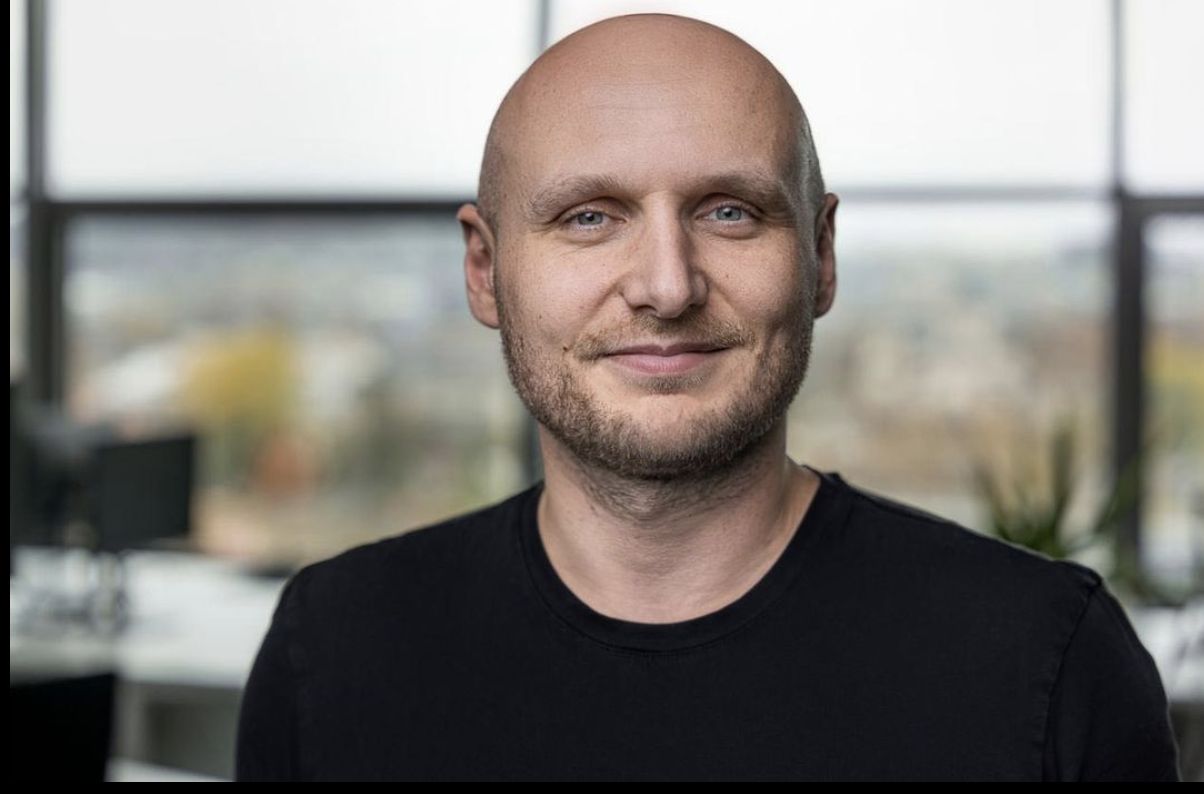Okmanas: If We Want More Unicorns, We Need to Invest in Youth Education and the Modernisation of Spaces
 The pandemic has revealed a number of gaps and problems in the health sector. It has demonstrated that in order to become an actual innovative country, we have to improve the medical sector, combat the consequences of the pandemic and ensure a more sustainable and resilient economy in the future.
The pandemic has revealed a number of gaps and problems in the health sector. It has demonstrated that in order to become an actual innovative country, we have to improve the medical sector, combat the consequences of the pandemic and ensure a more sustainable and resilient economy in the future.
According to one of the founders of Tesonet, Tomas Okamas, the main focus of the state should shift towards the area of medicine and the creation of new technologies. “Human health and welfare are priceless, whilst new technologies attract large investments, which, in turn, create jobs and added value for the country.”
IT security: investment in the future
According to Okamas, we don’t need to look far for successful investments in the area of technologies. “The Lithuanian company NanoAvionics has attracted massive investments in securing Lithuania’s position as a country of successful technology start-ups, and investors are taking notice more often of new local businesses. This proves that we have talented people who are able to create competitive products, which is why it is crucial to support the companies in this sector,” Okamas thinks.
The Tesonet founder states that another area which has become exceptionally important these days – as we spend most of our time online where we shop, communicate, work, invest and even create companies – is cybersecurity. The world is facing data leaks, which is a reoccurring and growing problem, and Lithuania is no exception. Hackers steal data and leak them, and companies are forced to not only deal with serious legal issues but also to regain their customers’ trust. Therefore, Okamas believes it is important to educate not only individuals but also businesses on the importance of security and the reasons why proper data supervision should become a necessity.
“One tiny gap in security in this area can be very costly both to individuals and to businesses as well as to the state. So, I believe that cybersecurity is an investment in the future which in the long term will create substantial added value,” says the businessman.
Silicon Valley’s strength in its community
When asked about what is needed the most in the IT sector in Lithuania so it can be able to create more innovative and higher-added-value products, Okmanas thinks that the most important aspect is knowledge sharing and strengthening the community. “Silicon Valley, for example, manages to create innovations so quickly and effectively due to its tight-knit community, which works together and shares knowledge and experience. We need to learn from them – we have some strong start-ups, businesses and even one unicorn – so it’s apparent that we have the talent and the knowledge.”
A few years ago, when the first unicorn popped-up in Lithuania (a start-up company with a valuation of over €1 billion), a message was sent out to the world that this country is a great place for establishing a rapidly growing business. In order to further enhance our image and ensure a greater trust of the world in Lithuania, we have to educate talented professionals who would closely cooperate in order to create innovations and exceptional products.
“It is probably quite obvious that if we want Lithuania’s economic turnover from innovations to grow and, in turn, for the country to become more competitive internationally, we have to be ready to create and offer products and services to foreign markets and, at the same time, seek to understand how they function, what rules of the game apply there, etc. For example, the founder of Facebook, Mark Zuckerberg, has been learning Chinese so he can understand Chinese culture and communication etiquette as well as better know the Chinese market,” says Okmanas.
Spaces adapted to working together and to innovations
The interviewee is confident that investment in young people and professionals means investment in innovations. “That is why we need not only to educate and encourage young people but also to invest in their education and the modernisation of learning spaces, as schools, colleges and universities need to be convenient and inspiring. The learning spaces where students spend most of their time need to be adapted to working together, to innovations and to productive leaning. These elements are crucial and have to be implemented as quickly as possible if we want to have more unicorns and be more competitive on a global scale.”
Today, more and more businesses in Lithuania are opening up to innovations and foreign investors are taking better notice of our country. At the same time, the universities and other educational institutions are not afraid of finding out how to cooperate with successful businesses. “If the state supports those who strive for innovations in their daily work, I think we will become an even stronger country that will be able to compete successfully with foreign markets,” the businessman asserts.